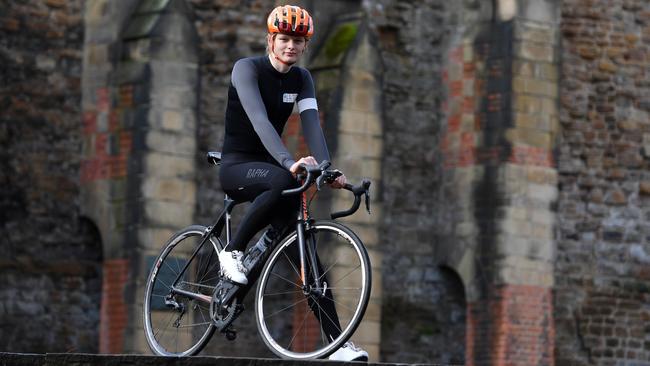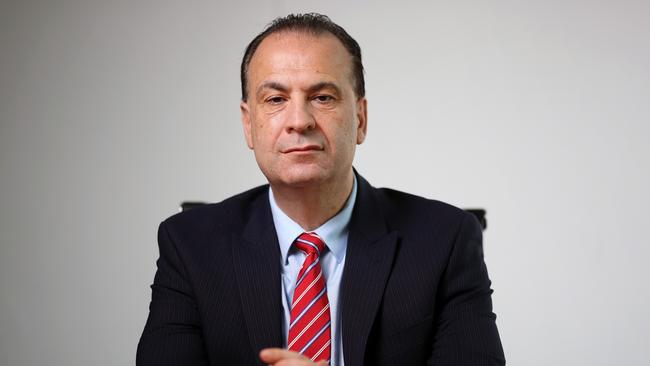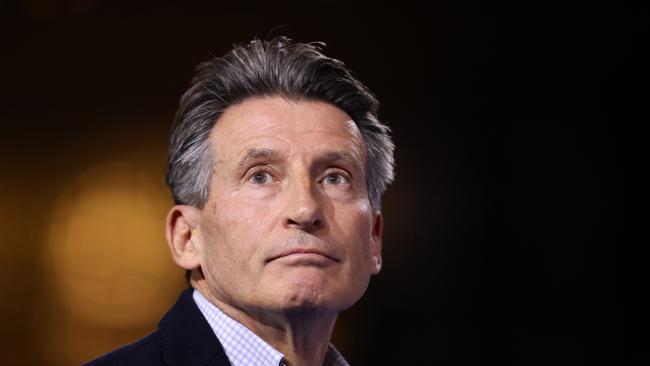NRL, NRLW transgender athlete policy: Governing body faces huge test to get trans strategy right
Sports administrators around the world have been exposed over policies on trans athletes. Can the ARL Commission learn from these mistakes before finalising the code’s guidelines?

NRL
Don't miss out on the headlines from NRL. Followed categories will be added to My News.
The ARL Commission will meet on Tuesday and one of the items on the agenda is their policy on transgender athletes.
The policy is understood to be in the last stages of finalisation and is expected to be a priority agenda item.
In recent months, the conversation around the inclusion of trans women in elite sport has been an intensely debated issue across the world.
It’s been an extremely toxic conversation at times, with those who suggest women’s sport be entirely restricted to biological born women dubbed “transphobes”, while trans athletes have been left feeling “demonised”.
Stream every game of every round of the 2022 NRL Telstra Premiership Season Live & Ad-Break Free In Play on Kayo. New to Kayo? Try 14-Days Free Now >
While the NRL carefully compose a policy in this space, other sporting bodies are changing boundaries regarding trans women on the run, with chaotic and crushing consequences.
On Sunday news broke that transgender cyclist Emily Bridges is set to miss out on qualification for the Commonwealth Games after the world cycling body, the UCI, moved to block her from continuing to compete.
Bridges, 21, had been wanting to compete in the women’s category for Wales’ team for the Birmingham Games, even though in February Bridges won the men’s points race at the British Universities championships in Glasgow.
But Bridges has played by cycling’s rules.
She started the required hormone therapy last year and because her levels of testosterone have been lowered she was eligible to enter women’s events.
Much like swimmer Lia Thomas, the trans woman who won the 500-yard title at the NCAA championships in the US last month and has the Paris Olympics in her sights, Bridges had not broken a competition law.

But as the outrage grew and some of her female competitors consider boycotting the British National Omnium Championships, the UCI moved to block Bridges from riding in elite women’s events. An expert panel will review her case over the next six weeks. As this all unfolds, Bridges won’t get a shot at qualifying for the Commonwealth Games.
The UCI are now also looking to impose stricter rules around testosterone levels.
The issue of trans women in sport is exposing some seriously poor sporting administration. Administrators have failed to listen to the voices of biological women and not paid enough attention to the science. In the end, their weak decision-making hurts everyone involved.
For years Olympic swimmer Sharron Davies has been vocal on this issue and believes trans women athletes have an unfair advantage. She has repeatedly quoted science that says at an elite level the performance gap between men and women could be 10 per cent to 20 per cent. She says this “potential benefit” cannot be ignored.
Davies labelled cycling’s handling of Bridges as shameful.
“British Cycling ought to be ashamed,” Davies said. “Emily competed with the men’s team successfully last year while reducing testosterone. This is wrong and people must start calling it out or lose sport for future generations of young girls”.

The only major sport to outright ban trans women at the top level is rugby union.
World Rugby put a line through transgender women at a World Cup level because of “significant” safety concerns. For that LGBTQ sports advocacy group Athlete Ally said the governing body had demunanised trans women. “At a time when violence against trans women is at an all-time high & sport is literally a lifeline, @WorldRugby‘s ban further dehumanises trans women” the group tweeted.
The debate over trans women athletes reveals a glaring omission at the decision-making table where these issues are discussed.
In many cases biological women have not been at the table when it comes to discussing the inclusion of trans women in their sports.

It’s a point raised by triple Olympic gold medallist and activist Nancy Hogshead-Makar, who believes those athletes who have been through male puberty should not be allowed to compete in the women’s category. She says there wasn’t a cisgender woman sitting at the table when the NCAA trans policies were being decided.
As World Athletics chief Sebastian Coe said several weeks ago, “the integrity of women’s sport if we don’t get this right, and actually the future of women’s sport, is very fragile.’
Coe is right.
Ultimately, the question that needs to be answered centres on fairness. Do trans women have an advantage over biological women? That is all.
The boundaries placed in elite sport need to be based on fairness, biology and science. The clearer the rules are, the better elite sport will be for everyone.
More Coverage
Originally published as NRL, NRLW transgender athlete policy: Governing body faces huge test to get trans strategy right





